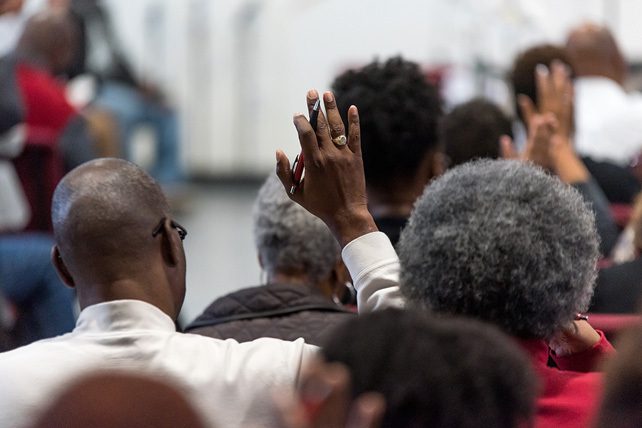
In a typical week, a Black church hosts many activities that nourish the whole person. During choir rehearsal, gospel anthems fill the sanctuary with uplifting melodies. On weekday afternoons, retired teachers tutor students, blending academic support with warm encouragement. A community breakfast on Saturday morning brings neighbors together over a hot meal, addressing both physical and social needs. As Easter approaches, children practice speeches with the help of patient volunteers, building anticipation about cherished traditions.
These moments, experienced in Black churches across America, illustrate a commitment to caring for every aspect of life—not just on Sundays but throughout the week. This holistic approach provides valuable lessons for church leaders and faith communities, demonstrating how ministry can enrich neighborhoods and help the larger society flourish.
Historical Roots
For generations, Black churches have stood as havens of strength and hope in African American life. During slavery and segregation, these faith communities provided refuge, spiritual leadership, and a sense of belonging. Throughout the Civil Rights Movement, Black churches became command centers for justice. In every era, these congregations have inspired creativity, community, and social uplift.
The Black Church isn’t a monolith; these congregations vary in tradition, worship style, and focus. Yet they share a common mission: building faith in Jesus while meeting people’s physical, emotional, and intellectual needs. These purposes, shaped over centuries, challenge all faith communities to restore hope and put love into action.
Authentically Christian, Distinctly Black
The Black Church was born out of necessity. It emerged to meet the spiritual and social needs of people who were excluded from mainstream worship spaces. Both enslaved and free African Americans created sacred communities where they could worship in freedom and fullness. During the Great Awakenings, an emphasis on personal salvation and spiritual equality deeply resonated with African Americans. They were drawn to messages that powerfully affirmed their humanity and dignity.
Yet the Christianity that Black believers encountered was often distorted. Some people misused Scripture to justify oppression and deny worth. In response, African Americans reclaimed the faith, seeking its true message and interpreting the gospel through the lens of their struggles and lived realities. Black believers forged an expression of faith that remained wholly Christian while offering fresh insights into grace, perseverance, and God’s boundless love.
Through Spirit-filled worship, expressive music, and participatory prayer, the Black Church cultivated a worship environment that reflected the fullness of life in Christ. Whether through songs of adoration and thanksgiving or prayers of lament and renewal, these expressions embraced the breadth of human emotion and a deep trust in God’s providence. At the heart of this worship was a strong sense of community, where shared acts of praise brought healing, encouragement, and spiritual rebirth.
This distinct identity, shaped by both faith and cultural heritage, equipped the Black Church to serve as a place of spiritual refuge. Contributions such as discipleship and vibrant expressions of worship continue to inspire believers worldwide. As a result, the Black Church reminds the global Church of faith’s power to transform individual hearts and entire communities.
Spiritual Anchor and Social Catalyst
In America, the Black Church quickly evolved beyond its role as a place of worship. It embraced dual roles: a spiritual anchor and a driving force for social change. By the 20th century, the Black Church had become a command center for movements of equality and justice. It elevated leaders such as Dr. Martin Luther King Jr., a champion of nonviolent resistance, and Fannie Lou Hamer, a voice for grassroots activism. These figures—alongside countless other pastors, community organizers, and congregants—demonstrated how faith communities can inspire movements for justice while nurturing the spiritual strength required to persevere.
These simultaneous roles remain central to the identity of the Black Church. It continues to address members’ holistic needs of body, mind, and soul while challenging and overcoming systemic biases. At the core of the Black Church’s two-pronged purpose lies a commitment to mentorship, ensuring that its mission endures across generations. This dynamic blending of pastoral care and advocacy offers a compelling model for churches of all traditions. It shows how Christians can use the power of the gospel to bring about individual spiritual renewal as well as much-needed social change.

